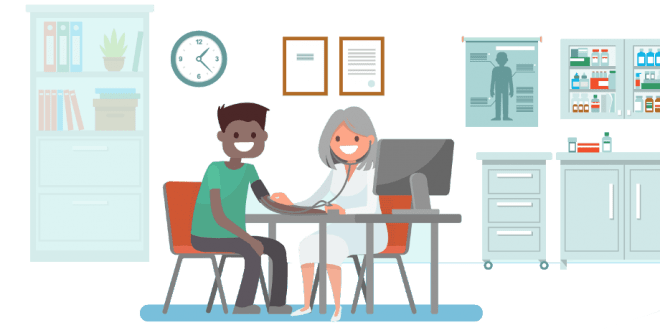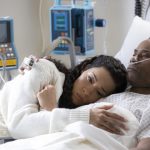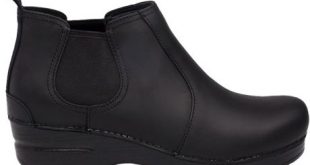In the past few years, electronic record keeping in the health care system has shown a tremendous change. Nowadays most of the patient data like the medical record are kept in online databases. District nurses have access to these files and they can look up patient information easily. Medical records in past were not easily accessible to nurses as the data was kept in manually formatted paper files that could only be archived by that person’s clinical care team. The facile access to medical records has resulted in malicious, sometimes curious acts like leaking patient information for either personal or political reasons.
Recently, two NHS workers were reprimanded because they looked up and leaked the medical records of a renowned singer, Ed Sheeran. Such acts on the behalf of nurses are highly unprofessional and liable to legal proceedings. Therefore, nurses should only look up relevant patient records for the right reasons. Nursing is a challenging profession and nurses face many problems while making day-to-day decisions for their patient care. Thus, access to record-keeping help nurses to provide quality care to their patients.
Nurses are trained to analyze hospital medical records and comment on the occurrence of adverse events, as well as the quality of hospital care and its impact on patient outcomes.
As a result, nurses must stay up to date on regulatory requirements and record-keeping best practices. The National Medical Council’s Code of Professional Conduct recommends that good note-taking is an important tool for nurse-to-nurse communication. Nurses must “ensure that the patient or client’s health care record contains an accurate account of treatment, care planning, and delivery,” according to the document. It should offer unambiguous proof of the care that was planned, the decisions that were taken, the care that was provided, and the information that was provided.
Why do nurses have access to medical records?
The main that arises here is that why do nurses even have access to patients’ medical records? The nature of a district nurse’s interaction with their patients relies on open communication to enable accurate assessment and care, which is mostly based on a personal history of the person’s health problem. Sensitive health information is shared with the assumption that their privacy will be protected by preserving the confidentiality of the data they provide. Therefore, nurses need to be able to look up data when needed to give quality care to the patients. In all cases, the quality care of patients should be prioritized without any personal gain.
Nurses should respect their patient’s confidentiality

The categorizing of a patient’s health data is an important part of a region attendant’s professional and ethical work. The nurse care ethics has an obligation of classification, which includes ensuring that information about patients is shared with care. Nurses should only leak patients’ information to a health care professional if the information affects the health status of the patient. Respect for a person’s overall right to protection and classification in the hereafter. They can share patient data with careers and patients but should maintain integrity and sensitiveness.
Duty of confidence in nursing
The duty of confidence is imposed on all the individuals involved in the health care system including volunteers. It protects the patient’s health information while maintaining high standards of professional conduct and practice. When one person gives information to another under circumstances where it is reasonable to expect that the information will be kept private, that person owes the other person a duty of confidence.
The NHS District nurses are bound by three interconnected legislative obligations that work together to reassure patients that their health information would be kept confidential. These obligations include a duty to respect, legal duty, and professional duty to maintain patient confidentiality. District nurses must be aware of the breadth of the obligation of confidentiality due to patients and only access or reveal information given in confidence when it is appropriate.
Monitoring access to medical records.

The health care officials are notified if a nurse tries to look up medical records through an inappropriate access inpatient record system. Personnel is not allowed to check up patient data unless there is a direct medical need, and ten members of the hospital’s staff were disciplined (for looking up Sir Bobby’s records). The suspicious acts on the behalf of nurses are carefully monitored and action is taken where required to keep the momentum. These legislations play an important role in keeping patients’ information safe.
Ethical use of power to look up medical records
We all know that “With great power comes great responsibility” so nurses have a greater obligation to use their powers for the good of the patient. The nurses can show their dedication and honesty towards the power given to them by never exposing patient confidential information through unethical acts like gossiping. They should always prioritize physically securing the patient record and information. They should limit their access by only looking up the data of the patients in their care. They only provide patient information to a suitable source in accordance with the NHS code of practice on confidentiality, legal constraints, and the NMC’s amended code.
Conclusion
It is settled that nurses do have access to patients’ medical records but they are bound with a code of ethics and responsibilities to make sure that this power is not misused. These contractual and professional obligations are not only limited to current patients but are also applied to past or deceased patients. Nurses should not be involved in unethical sharing of patients’ personal or medical history. The nursing principles emphasize much on ethics and codes of patient confidentiality with quality patient care being the primary focus.
Nurses should only access the data of the patient that they are directly responsible for taking care of. The detection of breach of information makes nurses liable to court proceedings. District nurses must respect patients’ privacy and resist the temptation to look at computerized records of those who aren’t under their care.
 Nursing Trends
Nursing Trends







